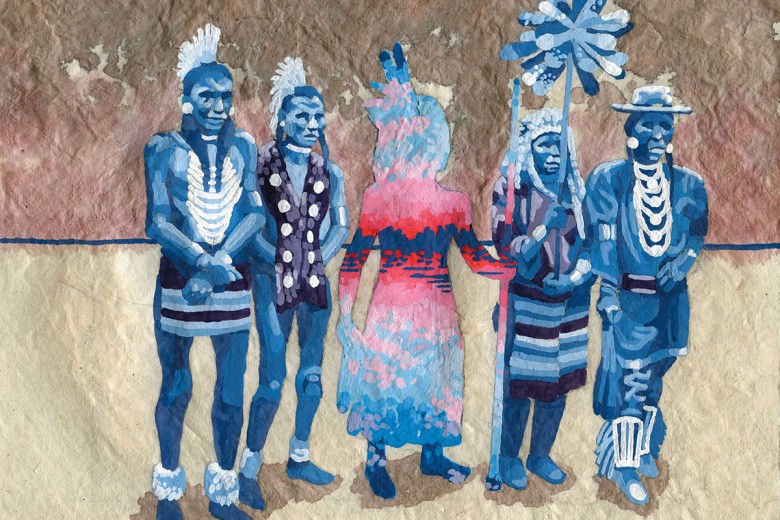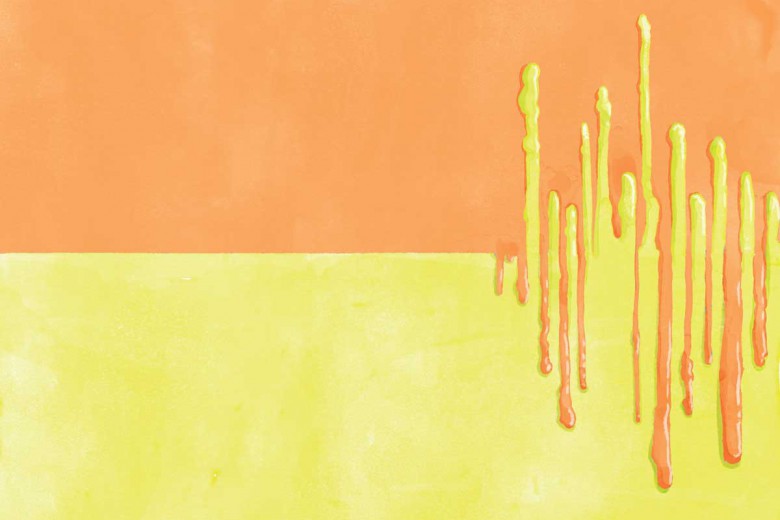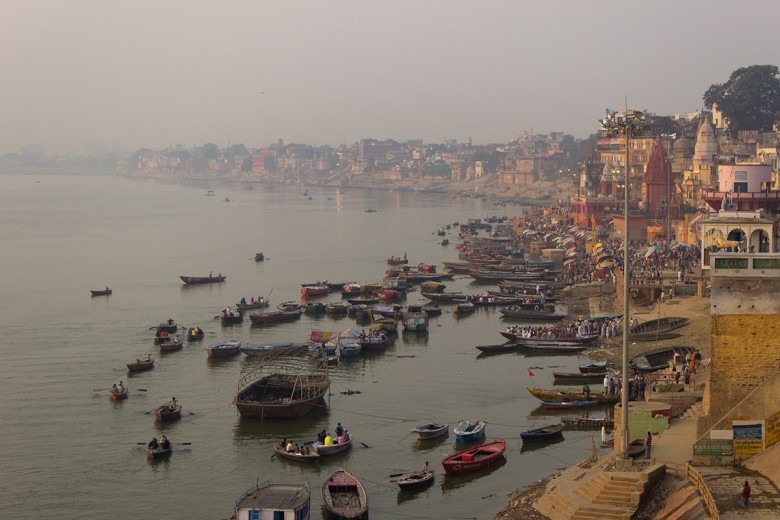Home n casa [1] f; (for old people) residencia f de ancianos; (native land) patria f. a
__________
1 Padre guides her to a room and points to her luggage, signifying that the room is hers for the duration of her stay. Time preserved in photo frames are dispersed throughout the room—clear plastic shields capture smiling brown faces of a family she cannot recognize.
2 The smell of simmering beef lingers through the door. Padre enters carrying two plates of pabellón criollo. With his left hand he holds one plate and balances another on his forearm, with his right hand he grasps two bottles of cola. His eyes are a light grey and unlike his skin possess no signs of age. As they eat, he flips through verbal albums of the past; he speaks slowly and uses his hands to help form meanings of words. In thirty minutes, she uncovers three vital pieces of information: padre shares her compulsion of mashing each forkful of food before it is consumed, simple name changes
transform common dishes into a new dining experience, and one sister and three nephews lengthens her list of unknown kin.
3 In the morning, padre guides her through this familiar foreign country. Large red and white posters adorn the front doors of pink and blue houses like lambs blood proclaiming, Sí, Con Chavez and Patria, Socialismo o Muerte.
4 Entrance to the streets of Caracas requires an on-the-spot autobiography: “You were born in Venezuela?”
“Yes.”
“And you don’t speak Spanish?” continues the inquiry by immigration.
“Sí, no español.”
The attendant ignores her attempts toward wit, “Do you have family here?” he says.
“No. Well, yeah, I guess. I’m here to see my father.”
5 She successfully passes the examination and intersects between packs searching for the missing members of their clan at passenger pickup. She conspicuously inspects each man’s nose. When her Mother spoke of her father conversation unfailingly drifted to his nose: “His nose, perfectly carved for his face.” She would touch her daughter’s nose, and finish the incantation by saying “that bump you got it from him.”
She is about to initiate a father-daughter reunion with a man whose nose also seems perfectly carved for his face when another man whispers her name in her ear. He holds a brown tattered Spanish-English dictionary.
“Alejandro?” she says, still hoping she shares genes with the first more youthful of the two men.
“Sí, pero, uh, but, I am your padre,” he says, emphasising the word “padre” with hopes to evoke infant memories of his part in her first two years of life. The language barrier prevents any instinctive significance to the word, so to her it’s just an empty title.
6 Marvelled by the contradictions of the senses she stands still, in the middle of the road, and fits the scene in a secure compartment of her mind. Padre quickly ushers the Canadian inside with an early diagnoses of culture shock.
7 The drive-by scenery provides little opportunity to take mental pictures of a vibrancy hidden behind the night. The car manoeuvres into a narrow street; a line of metal gate bars stands guarding each house. A dog with no home patrols the street and claims the entire neighbourhood as his own. Cumbia
partners with travelling scents from various kitchens, and greets her as she steps out of the car.
8 For fourteen days pictures and fragmented stories converts strangers and aged buildings into the framework of a life. She applies imagination to replace any gaps lost in translation.
Archaeology (A Tour of Home Part 2 – Five Years Later)
Dirt and dust gather on memories, [1]
burying a language [2] I am told
from border to border
is my own. [3]
Each lost wor
d found are artifacts
of past lives, memories triggered
lived [4] and imagined [5]
on cross continent journeys by plane bus boat
I discover words yet to be defined
in my own personal history [6]
-a pile of mismatched bones. [7]
I record these discoveries
in English.
__________
1 It’s been four months since he died.
Now, she knows his absence is more than a matter of miles, conversations lost in translation, and place tickets.
2 It’s been twenty years of imagining him. She pieced together fragments of maybe twelve phone calls stumbling through Spanish words fed to her by her Mother. Hola padre buenas dias. Me amo… I mean uh, Te amo. He replied, “hello my friend, my daughter” and then converted back to a string of words she didn’t understand or remember.
3 But she remembered his voice—warm, gentle, and guilt-ridden.
4 It’s been five years since she met him. His grey hair and age-trampled skin did not match those images of him framed in her memory. After the two-week tour of her birth place, evidence of his existence grew to now maybe—fifteen phone-calls, and the faces of men she saw on subways, the mall, on television medical dramas, and in grocery stores that her Mother would probably say looked like him, but now she finished the thought with when he was young.
5 It’s been twenty years of piecing together faces of men she saw on subways, the mall, on television soap operas, in grocery stores, when her Mother pointed and whispered, “he looks like your father.” They had his sloped nose, or his brown hair, or grayish-green eyes.
6 It’s been twenty-three years since he went out the door, and in return Mother and daughter left the country.
7 It’s been a lifetime of exhausting “Where are you from?” conversations usually ending with, “Well I grew up in Canada, with my mom and her family but their Guyanese so I’m basically Guyanese-Canadian, they speak English at home and my dad’s Colombian but he lives in Venezuela and I don’t keep in touch with him and his family, so no I don’t speak Spanish.”






